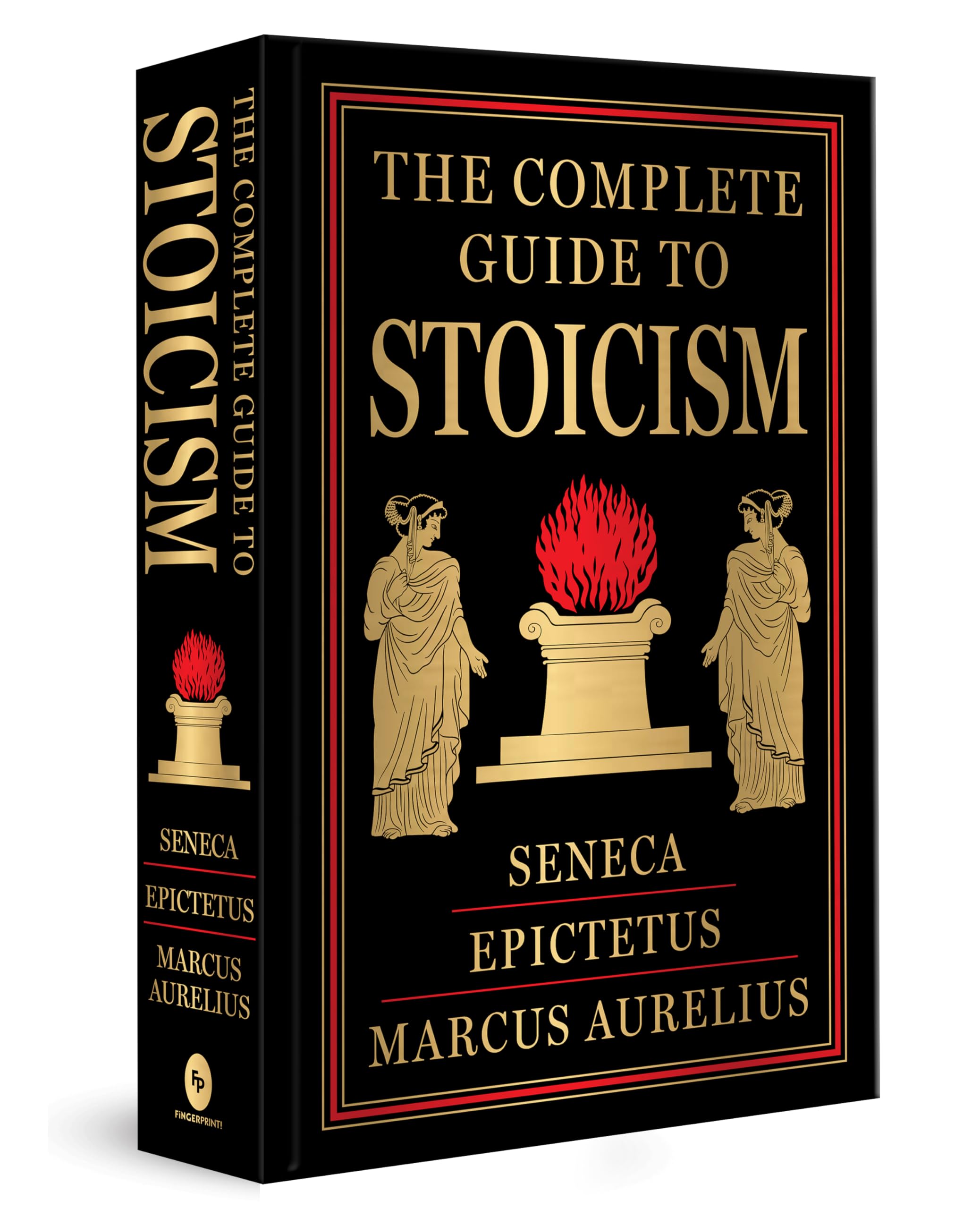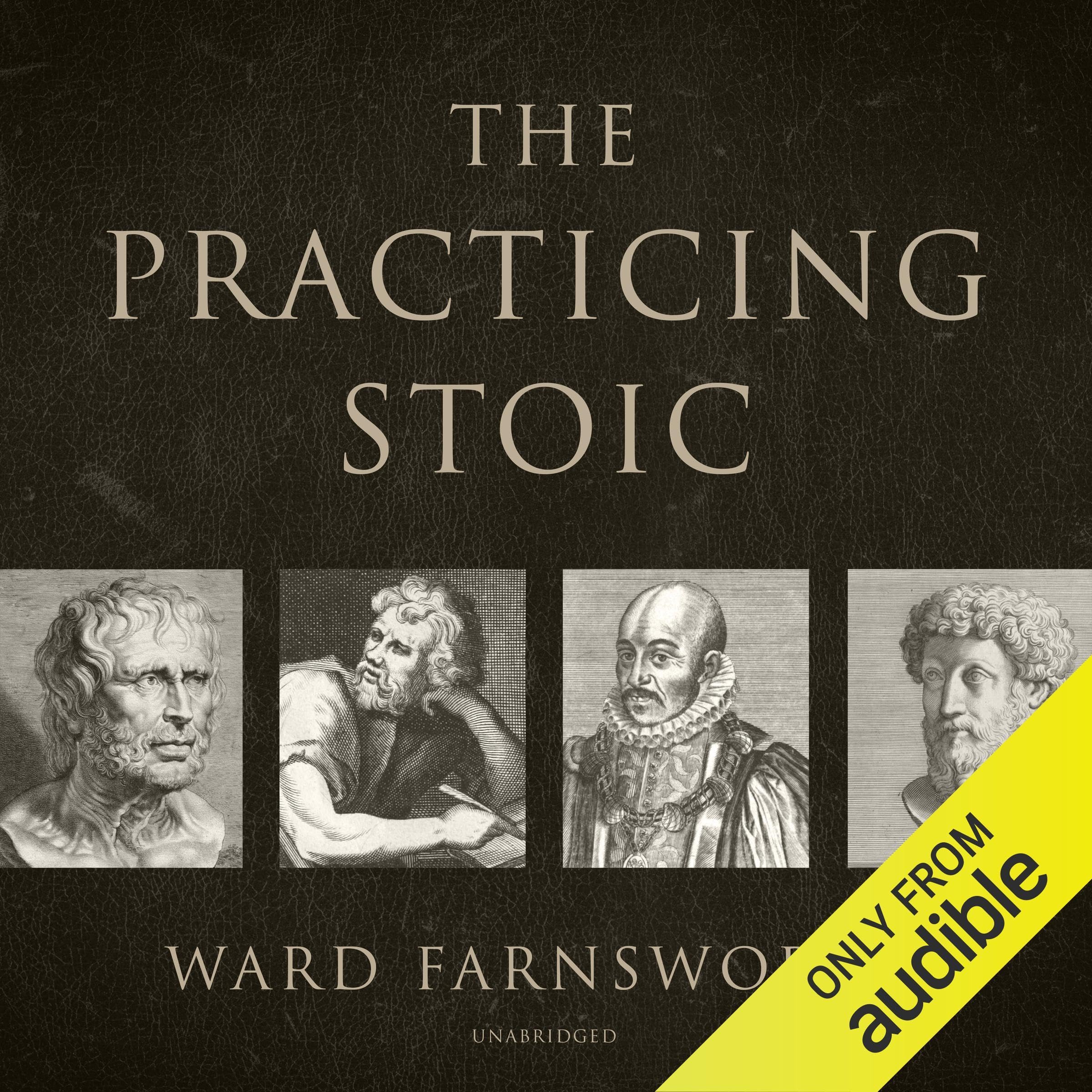Stoicism is an ancient philosophy that teaches us how to handle stress, setbacks, and daily challenges. The key idea is to focus on what we can control and accept what we cannot.
Many people turn to books on stoicism to learn practical advice for living a calmer, more thoughtful life. These books give us guidance from philosophers like Marcus Aurelius, Epictetus, and Seneca.
Some books share the original texts. Others offer modern explanations and exercises.
No matter your background, these books can help you build resilience and find meaning in tough times. When choosing a book on stoicism, it helps to know what you’re looking for.
Some people want direct translations of ancient writings. Others prefer easy-to-read guides with tips for daily life.
Consider your reading level and whether you want historical context or practical advice. We reviewed popular titles to find the books that make these helpful ideas clear and useful.
Best Books on Stoicism
We selected the best books on stoicism for readers interested in this practical philosophy. These books cover key ideas and offer guidance on how to apply stoicism in daily life.
Daily Stoic Meditations
This book is a practical choice for anyone wanting to add stoic wisdom into their daily routine. You don’t need to spend hours studying philosophy to benefit.
Pros
- Simple, daily readings are easy to stick with
- Real quotes from famous Stoic writers make the lessons memorable
- Makes philosophy feel useful in everyday life
Cons
- Some days feel less inspiring than others
- Brief format doesn’t dive very deep
- Daily setup may not suit everyone’s learning style
We found that Daily Stoic Meditations gives us small pieces of wisdom each day. The short passages fit right into our mornings and give us something solid to think about.
Every entry starts with a real quote from a Stoic philosopher and follows up with a simple explanation. The book covers many parts of life and ties old ideas to real problems today.
Sometimes the lessons feel a bit light, but most days end with a good reminder that we can handle what comes our way. Using this book doesn’t feel overwhelming and encourages us to reflect for a few minutes every day.
If we miss a day, it’s easy to pick up where we left off. This is a straightforward way to try stoicism without having to study thick textbooks or get lost in old language.
Beginner’s Guide to Stoicism Audiobook
This audiobook is a helpful starting point for anyone who wants to learn the basics of stoicism in a simple, practical way.
Pros
- Easy to follow and understand
- Practical daily exercises for real life
- Short listening time makes it manageable
Cons
- Sometimes feels a bit basic for advanced listeners
- Lighter on historical background than some may want
- Occasional repetition in the main ideas
After trying out “The Beginner’s Guide to Stoicism,” we found it very approachable, especially as an audiobook. The narrator’s voice kept us engaged, and the clear structure made it easy to follow along.
The biggest strength is how direct the guidance feels, using examples that relate to everyday problems. We appreciated the practical activities after each section, which helped us practice stoic ideas right away.
This makes the audiobook suitable if we’re short on time, since it covers key topics briskly. Some points are repeated, and listeners who want deeper discussion of ancient texts or history might want more detail.
For anyone taking first steps into stoicism or looking for fast, accessible advice, Beginner’s Guide to Stoicism Audiobook is a reliable place to start.
Meditations for the Modern Reader
This updated version of Marcus Aurelius’s Meditations is a solid buy for anyone who wants life lessons written in clear, modern language.
Pros
- Ideas are presented in everyday words that make sense right away
- Offers helpful advice we can use in daily routines
- Feels like a real conversation rather than an ancient lesson
Cons
- Some classic phrases are lost in the update
- A few parts still feel a bit heavy to get through
- Not every insight is easy to apply right away
We found this edition of Meditations very approachable. The language feels fresh, letting us focus on the message instead of stumbling over old words.
It’s a relief not to fight through confusing sentences just to find the important ideas. Every chapter gave us tips we could actually try in our lives, like reminders to stay calm or not to worry too much about what others think.
These simple steps helped us see things clearer. Some of the old style is gone, and a few sections still took more effort to understand, even with the updates.
If we want ancient wisdom in a form that fits today, Meditations for the Modern Reader is a good choice.
Complete Guide to Stoicism – Deluxe Edition
This hardbound collection is a solid choice for anyone interested in learning about stoic philosophy in detail.
Pros
- Covers a wide range of stoic ideas and writings
- Hardcover edition feels sturdy and looks great on a shelf
- Clear layout that’s easy to flip through
Cons
- Thin pages can make the text show through
- Large size is a bit heavy to carry around
- Some translations may feel formal or dated
When we picked up the Complete Guide to Stoicism – Deluxe Edition, we immediately noticed the quality of the hardcover. It gives a good first impression and stands up well to daily use.
We liked how much material it covers in one place. It makes it simple to find classic stoic wisdom and read a variety of lessons back-to-back.
The organization helps us explore stoicism at our own pace, whether reading a few pages each day or digging into a full section at once. The paper is thin, so text can bleed through and make some pages harder to read.
The translation is solid but might seem a little formal. The size and weight also make it less ideal for carrying outside the house.
It works best for someone looking to build a strong foundation in stoic thought and doesn’t mind reading at home.
Little Book of Stoicism
This book offers a practical introduction to stoic wisdom that most readers will find approachable and useful for everyday challenges.
Pros
- Practical advice that’s easy to use
- Clear and simple writing style
- Great for people new to stoic ideas
Cons
- Some sections repeat the same ideas
- Doesn’t go deep into advanced topics
- May feel basic if we already know stoicism
When we picked up Little Book of Stoicism, it felt like the right blend of theory and hands-on advice. The book separates the basics from real-life actions, which helped us see how stoic thinking can fit with daily habits.
It was simple to follow, even if we hadn’t read much about stoicism before. We liked how concrete the tips are—it’s not just old philosophy, but actual steps for handling tough times, building confidence, and staying calm.
The author kept things clear without making the book too dry or heavy. On the downside, a few points showed up more than once, and the early chapters can feel somewhat repetitive.
If someone already knows a lot about this topic, the book might not dig deep enough. For anyone looking for a trustworthy and easy start, Little Book of Stoicism is a solid choice.
Meditations by Marcus Aurelius
This book is a strong choice if we want to explore practical ancient wisdom about facing everyday challenges.
Pros
- Hardcover feels sturdy and looks attractive on a shelf
- The bookmark ribbon is convenient for saving our spot
- Each section is straightforward and easy to read a little at a time
Cons
- Extremely thin pages let text show through from the other side
- Some parts of the translation can feel plain or overly simple
- The large printed quote on the back cover isn’t flattering
When we open this edition of “Meditations,” we find a classic text that stays direct and accessible.
The hardback cover holds up well with daily use.
The elegant bookmark helps us keep track of our reading.
The thin pages stand out right away.
We can see some print from the next page, which can be distracting if we prefer heavier paper.
The translation is clear, but sometimes feels too modern and plain for some tastes.
The cover design looks appealing.
The large quotation printed on the back interior cover is not subtle.
The book’s short sections and honest self-reflection make it easy to revisit for personal growth or to share with a friend.
The Practicing Stoic
This audiobook is a solid choice for anyone curious about Stoicism because it makes old ideas easy to access and understand.
Pros
- Clear and approachable explanations of Stoicism
- Wide range of quotes from both ancient and modern thinkers
- Well-organized chapters that are easy to follow
Cons
- Heavy use of quotations can sometimes break up the flow
- Some ideas might feel repetitive if you’re already familiar with Stoic authors
- Author’s commentary is less frequent than expected
We found that “The Practicing Stoic” presents complicated philosophy in simple language.
The author gathers important lessons from classic Stoic thinkers and arranges them by topic.
This makes the book easy to digest, even for beginners.
Each chapter starts with well-chosen quotes and ends with clear explanations.
The author includes helpful background, even though personal opinions are limited.
The narrator, John Lescault, speaks clearly and makes heavy topics easier to follow.
Some of us wanted more of the author’s own thoughts, since the chapters rely a lot on quotes.
This audiobook works well as a first introduction or as a way to review key ideas for those already interested.
Buying Guide
When looking for books on stoicism, we should consider our interests and experience level.
Some books are introductions, while others go deeper into philosophy.
It’s important to pick a book that fits our needs and reading style.
We may want to check the author’s background.
Books written by respected philosophers or well-known scholars tend to be more reliable.
If the author’s experience is unclear, it’s smart to read reviews from other readers.
The language of the book is another key factor.
Some books use simple, easy-to-read language, while others are more advanced.
If we’re new to stoicism, we might want to start with books that use basic terms and give real-life examples.
Here are some features to compare:
| Feature | Why It Matters |
|---|---|
| Author’s expertise | Ensures accurate and trustworthy information |
| Reading level | Matches our understanding and ease of reading |
| Practical exercises | Helps us apply ideas to daily life |
| References | Shows where information comes from |
| Publication date | Newer books may include recent insights |
We should also decide if we want books with practical exercises.
Some offer step-by-step guidance, while others focus more on theory.
Looking at the book’s length and format can help, too.
Paperback, hardcover, and digital versions may each suit us better, depending on our preferences.
Frequently Asked Questions
We find that questions about Stoic books often center on which to start with, which are classical sources, and which help connect Stoic ideas with today’s world.
Some readers are also interested in fiction influenced by Stoic themes or want more advanced and in-depth texts.
What are the best introductory books for someone new to Stoicism?
We often suggest starting with The Daily Stoic by Ryan Holiday and Stephen Hanselman.
This book offers short and practical insights from various Stoic thinkers.
Another good choice is A Guide to the Good Life by William B. Irvine.
It explains Stoic ideas in plain language and shows how to use them in everyday life.
Which titles are considered the classical texts for understanding Stoic philosophy?
Classical texts include Meditations by Marcus Aurelius, Letters from a Stoic by Seneca, and Discourses by Epictetus.
These books have shaped how people understand Stoicism.
The Enchiridion (or Handbook) by Epictetus is another short but important text for a basic grasp of Stoic thought.
Can you recommend any modern books that apply Stoic principles to contemporary life?
We recommend How to Be a Stoic by Massimo Pigliucci for readers interested in modern takes.
This book discusses making Stoic ideas useful today.
Stoicism and the Art of Happiness by Donald Robertson also helps relate ancient ideas to current problems like stress and anger.
Tom Wolfe’s A Man in Full weaves Stoic themes into its plot and characters.
It is one of the most notable works of fiction with Stoic influence.
J.K. Rowling has mentioned using Stoic ideas while writing the Harry Potter series, especially in the development of Dumbledore’s character.
What are the most recommended Stoic works for advanced readers seeking depth into the philosophy?
Advanced readers may explore The Stoic Philosophy of Seneca: Essays and Letters translated by Moses Hadas.
This collection covers complex moral and ethical issues.
John Sellars’ Stoicism and Pierre Hadot’s The Inner Citadel give more detail on historical context and the deeper aspects of Stoic thought.
Which books on Stoicism have been bestsellers or highly rated by readers?
The Daily Stoic by Ryan Holiday has been a bestseller. Readers often praise it for its accessibility.
Meditations by Marcus Aurelius is one of the highest-rated Stoic classics. Many people still read and recommend it today.
How to Be a Stoic by Massimo Pigliucci has steady positive ratings. A Guide to the Good Life by William B. Irvine also receives strong reader reviews.












